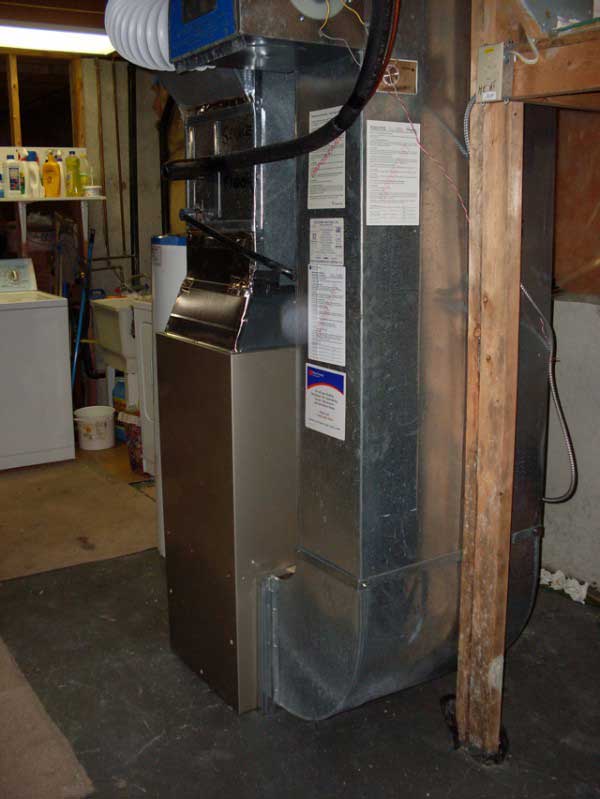
Although a boiler is a reliable appliance that’s used to heat homes and commercial spaces, sometimes, problems can arise. Whether it’s an electric, water-powered, or gas boiler, a sudden breakdown can leave a family without heat and/or hot water.
Understanding the common boiler problems that can arise can help homeowners take preventative steps to keep the system working in tip-top condition.
Common Boiler Problems
Failure to Ignite
- Causes: Older boiler systems require the pilot light to be lit at all times in order for the burner to function. The connecting parts such as the thermocouple, can become worn over time and may cause the pilot light to fail to work. The gas supply line may also be at fault for the ignition not functioning properly.
- Solutions: Whether the pilot light fails to work or there is an issue with the gas supply line, a failure to ignite situation requires immediate attention from a licensed professional. A quick check to see if the other gas appliances are working correctly in the home can narrow down the direct cause.
Low Boiler Pressure
- Causes: Water leaks and the act of bleeding the radiator can cause the boiler to have low pressure. A faulty interior component such as a seal can also create a low-pressure reading.
- Solutions: A water leak will require immediate attention by a registered technician for safety and maintenance reasons. If there are no leaks, the boiler system may need to be repressurized. Check the built-in pressure gauge to see if it has dropped below the 1 marking.
Strange Noises
- Causes: While most boilers create a noise, unusual sounds may be caused by low water pressure, a faulty pump, or a buildup of air or limescale within the system. A gurgling noise indicates trapped air, a humming sound can be related to the water pressure, and a whooshing sound usually is associated with an air blockage. An issue with the pump will usually cause a drone noise.
- Solutions: Any limescale buildup can be removed by descaling the boiler and air can be expelled by bleeding the radiators. As many boiler noises can be hard to distinguish, it is advisable to have a professional technician inspect the boiler.
Boiler Leaks
- Causes: A boiler leak may be caused by high pressure, a worn-out pump seal, corroded pipes, damage to the tank, or a faulty component. It is crucial to quickly find the source of the leak as water can damage and destroy electrical portions of the boiler system.
- Solutions: As a leaking boiler can be caused by a series of internal components, it is recommended to have a certified boiler professional investigate and fix the leak. Whether it is a pressure valve problem or a damaged part, it will require disassembling the boiler.
Frozen Condensate Pipe
- Causes: A condensate pipe can quickly freeze in subzero temperatures, even with proper insulation. This can be a frequent occurrence with pipes installed on the outside of the home or within an unheated space such as the garage if it is not properly insulated.
- Solutions: The condensate pipe can be thawed by pouring warm water over the outer surface (never inside of the pipe) or placing a hot water bottle on the pipe itself. This should allow the water inside to exit the pipe once it is thawed, forcing the boiler to function properly. To reduce the risk of having the pipe freeze again, wrap it with adequate insulation.
No Heating or Hot Water
- Causes: While a faulty boiler will cease to produce hot water or heat, the most common cause of misfunctioning is an issue with the power, water, or gas supply. It could also be a thermostat issue or the pressure within the boiler has dropped or risen significantly, causing the automatic safety feature to shut down the system.
- Solutions: The power, water, or gas line should first be checked, especially if there was a recent outage or if the connection was accidentally tripped. The thermostat reading may be changed to a higher or lower temperature to ensure it is working properly. A pressure gauge reading of under 1 indicates the need for repressurizing. If not resolved with one of these tasks, a professional should be called for an emergency inspection.
Boiler Maintenance and Preventive Measures
Preventive boiler maintenance can help ensure the entire system is functioning properly and can help expand the lifespan of the boiler.
Regular Maintenance Practices
Regular boiler maintenance can be performed on a weekly, monthly, or tri-monthly basis, depending on the usage of the boiler. Basic steps include checking the condition of the boiler, cleaning the filters, lubricating all movable components, and monitoring the water quality.
Those with experience in maintaining boiler systems can perform additional maintenance such as measuring the pressure and bleeding the radiators. Outside of this, a professional technician should be called for boiler maintenance.
Annual Boiler Servicing
An annual boiler maintenance service involves a detailed visual inspection for any existing issues and assessing potential issues within the boiler system. All components and safety devices will be cleaned and adjusted for optimal operation. This involves the main burner, exchanger, ignition pins, and ensuring the flue is clean with no obstruction.
A certified technician will perform operational checks for the flame sense device, pilot burner, cables, probes, thermostat, ventilation, flue, heating controls, wiring, seals, gas, and pressure flow.
Contact Econoair for Boiler Maintenance in Vaughan
Be proactive this year and ensure your boiler performs its best by calling the experts at Econoair Heating & Cooling Inc. We provide superior boiler maintenance in Vaughan in addition to our regular services for air conditioners and furnaces, as well as our customized repair, replacement, and maintenance programs. Call us at 905-763-2400 today to schedule a thorough inspection and checkup for your boiler.
